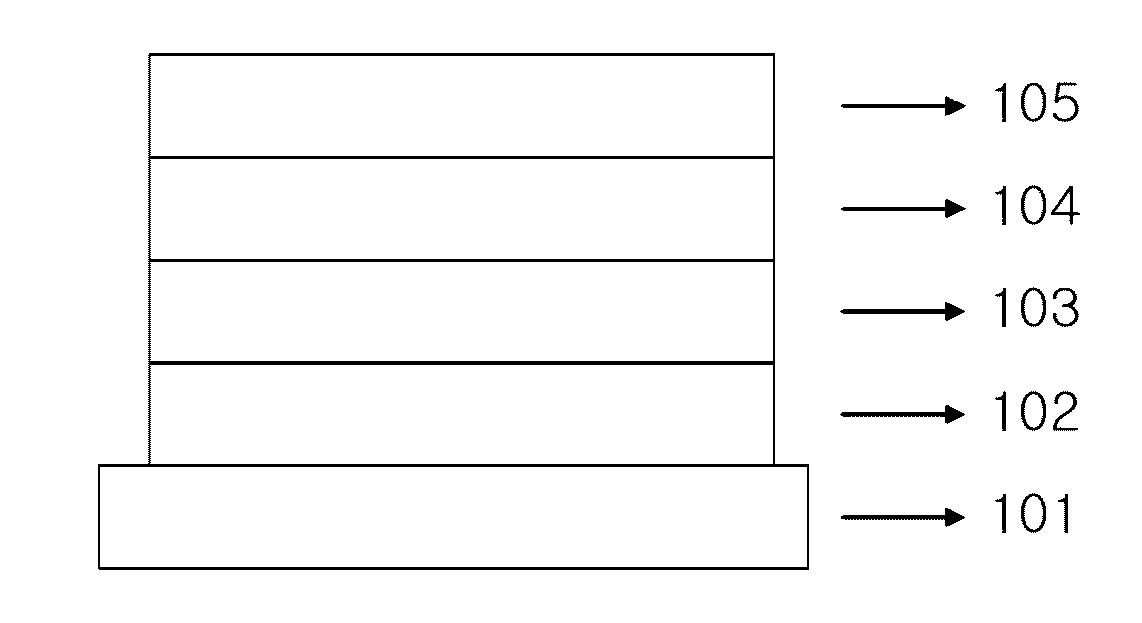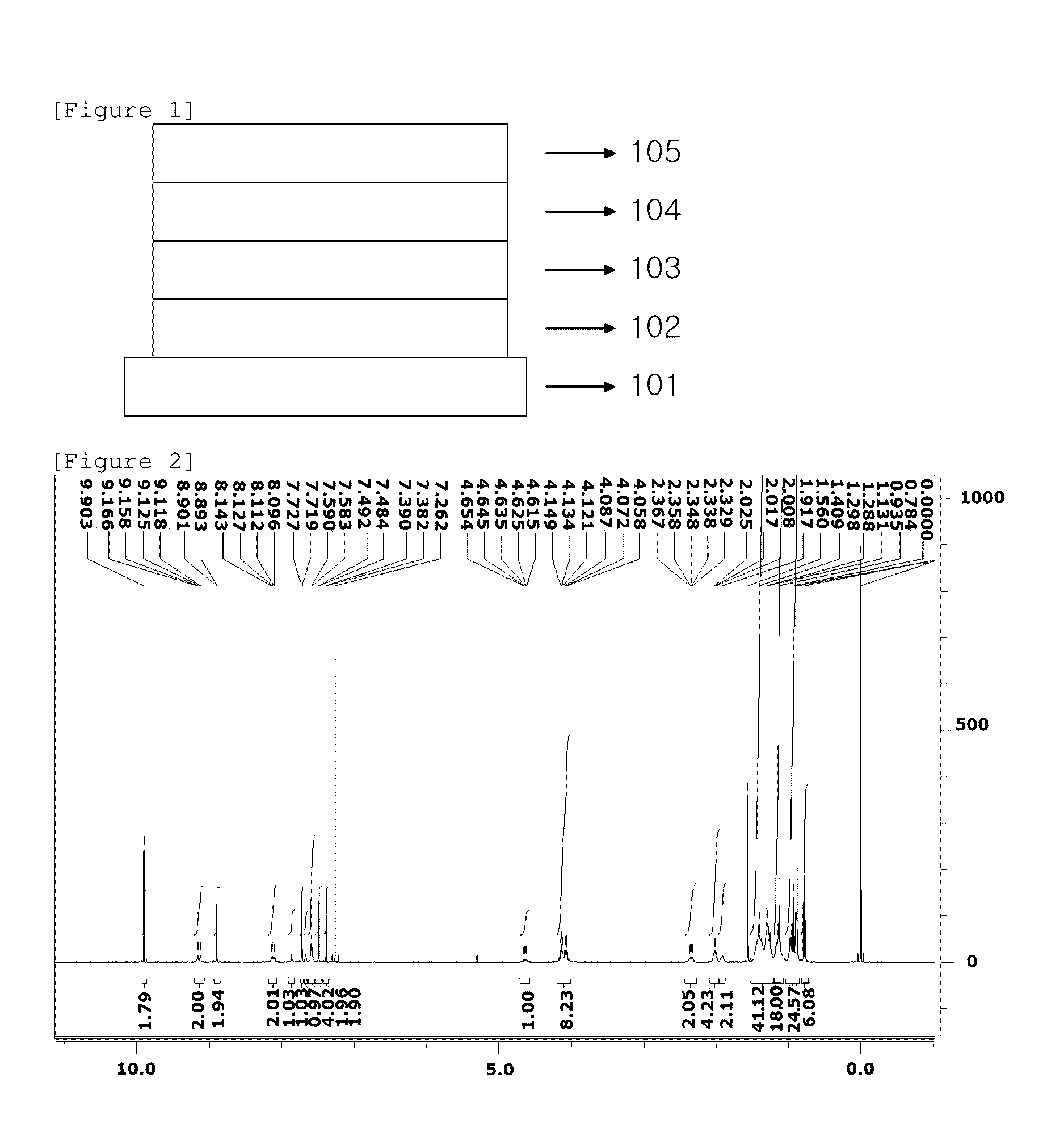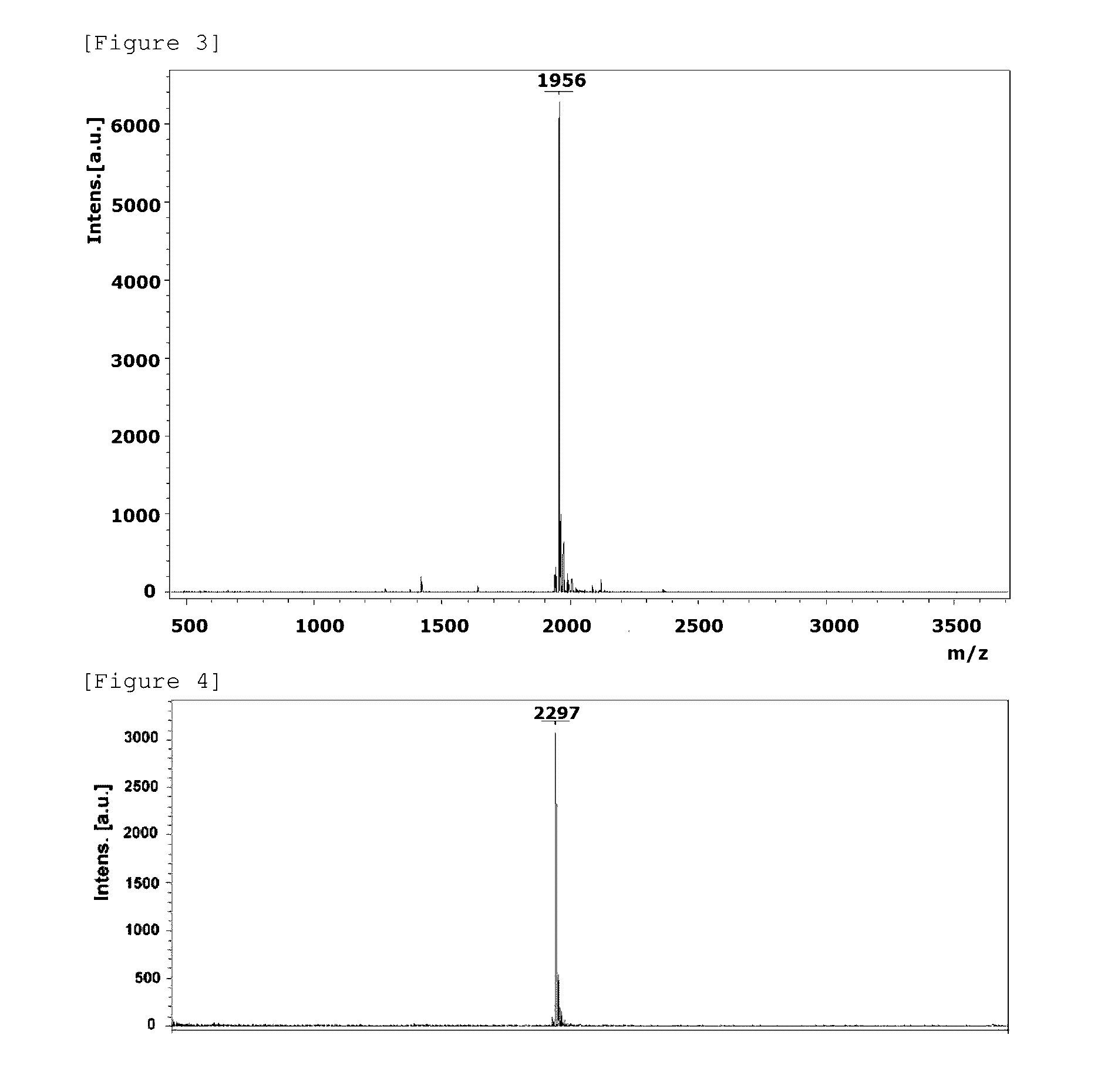Heterocyclic compound and organic solar cell comprising the same
a technology of organic solar cells and compound compounds, applied in the direction of organic chemistry, diketopyrrolopyrrole dyes, metal/polymethine dyes, etc., can solve the problems of increasing manufacturing costs, and achieve excellent planarity, low band gap characteristics, and maximize the effect of excitons
- Summary
- Abstract
- Description
- Claims
- Application Information
AI Technical Summary
Benefits of technology
Problems solved by technology
Method used
Image
Examples
preparation example 1
Preparation of Formula A
[0200]
[0201](1) 3-(5-bromothiophen-2-yl)-2,5-bis(2-ethylhexyl)-6-(thiophen-2-yl)pyrrolo[3,4-c]pyrrole-1,4(2H,5H)-dione (Br-DPP) (6.0 g, 10 mmol) and 2-aldehyde-thiophene boronic ester (2.65 g, 17 mmol) were dissolved in 300 mL of tetrahydrofuran (THF), a Pd(PPh3)4 catalyst (0.347 g, 0.3 mmol) was added thereto, and the resulting solution was stirred at 70° C. for 72 hours. After the reaction was performed, an extraction was performed with dichloromethane (DCM), the remaining water was removed over magnesium sulfate (MgSO4), and then the solvent was removed under reduced pressure. A dark purple solid Formula A-1 was obtained by subjecting the remaining product to silica column (eluent: hexane / DCM gradient=10: 1 to 1:1).
[0202](2) Formula A-1 (5.54 g, 8.73 mmol) was dissolved in 200 mL of chloroform (CHCl3), N-bromosuccinimide (NBS) (1.864 g, 10.47 mmol) was added thereto, and the resulting solution was stirred at normal temperature for 6 hours. After the reacti...
preparation example 2
Preparation of Formula B
[0203]
[0204](1) 3-bromothiophene (10 g, 61.33 mmol) was dissolved in 100 mL of tetrahydrofuran (THF), 2.0 M lithium diisopropylamide (LDA) (31.25 mL, 62.5 mmol) was slowly injected thereinto at −78° C., and then the resulting solution was stirred at −60° C. for 30 minutes. Trimethyltinchloride (1 M, 63 mL, 63 mmol) was added thereto at −78° C., the resulting solution was stirred for 1 hour, and the temperature was slowly increased to normal temperature. The solution was extracted with dichloromethane (DCM), and then the remaining water was removed over magnesium sulfate (MgSO4). A yellowish liquid Formula B-1 was obtained by removing the solvent from the remaining solution under reduced pressure.
[0205](2) Bis-triphenylphosphine palladium (II) dichloride (Pd(PPh3)2Cl2) and 1,4-dibromo-2,5-diiode-benzene (12.2 g, 25 mmol) were dissolved in 100 mL of dimethylformamide (DMF), and then the resulting solution was heated to 80° C. 2-trimethyltin-3-bromothiophene (18...
preparation example 3
Preparation of Formula 1-1-1
[0210]
[0211](1) 9-(heptadecan-9-yl)-2,7-bis(4,4,5,5-tetramethyl-1,3,2-dioxaborolan-2-yl)-9H-carbazole (0.46 g, 0.7 mmol) and Formula A (1.07 g, 1.5 mmol) were dissolved in 30 mL of THF, a tetrakis(triphenylphosphine)palladium (0) (Pd(PPh3)4) catalyst (0.0578 g, 0.05 mmol) was added thereto, 7.5 mL of 2 M K2CO3 was added thereto, and the resulting solution was stirred at 70° C. for 48 hours.
[0212]After the reaction was performed, an extraction was performed with dichloromethane (DCM), the remaining water was removed over magnesium sulfate (MgSO4), and then the solvent was removed under reduced pressure. A brown Formula 1-A-1 was obtained by subjecting the remaining product to silica column (eluent: DCM to CHCl3). (Yield: 59%)
[0213](2) Formula 1-A-1 (0.401 g, 0.24 mmol), three drops of piperidine, and 3-ethylrhodanine (0.743 g, 4.61 mmol) were put into 25 mL of chloroform (CHCl3), and the resulting solution was refluxed under nitrogen for 24 hours. After th...
PUM
| Property | Measurement | Unit |
|---|---|---|
| Energy | aaaaa | aaaaa |
| Energy | aaaaa | aaaaa |
| Molecular orbital | aaaaa | aaaaa |
Abstract
Description
Claims
Application Information
 Login to View More
Login to View More - R&D
- Intellectual Property
- Life Sciences
- Materials
- Tech Scout
- Unparalleled Data Quality
- Higher Quality Content
- 60% Fewer Hallucinations
Browse by: Latest US Patents, China's latest patents, Technical Efficacy Thesaurus, Application Domain, Technology Topic, Popular Technical Reports.
© 2025 PatSnap. All rights reserved.Legal|Privacy policy|Modern Slavery Act Transparency Statement|Sitemap|About US| Contact US: help@patsnap.com



